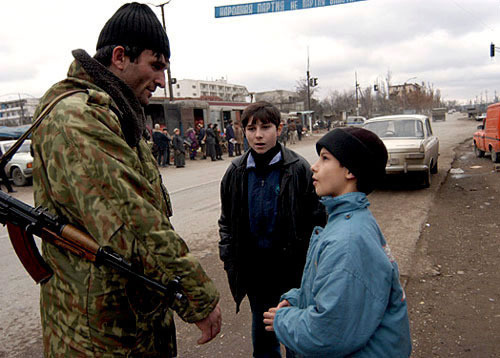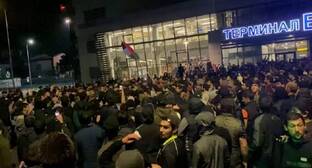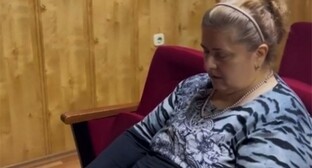
13 August 2009, 18:00
FIDH: Russia's anti-extremist laws give grounds to persecute dissidents
The Russian anti-extremist legislation has created a legal basis for persecuting both religious groups and public organizations; and these laws can be directed against written and oral statements. This was stated by the International Federation of Human Rights (FIDH) in its report "Russian Society under Control".
The FIDH marks that replenishment of the list of "forbidden" extremist publications is made day by day: even such texts like "Foundations of Islam" are included without any bibliographic data.
"An impression arises that the state has used this law for setting up some mechanism of political and ideological control, extremely pernicious for the freedom of speech and the freedom of worship," runs the report.
The FIDH especially emphasizes the use of the non-transparent notion of "warnings on inadmissibility of breaching the anti-extremist legislation", announced to organizations and mass media. In particular, such warning was announced in 2006 to the Society "Memorial", which had published in its Internet website the Mufti's opinion that certain texts disseminated by the "Khizb ut-Takhrir al-Islami" had nothing to do with extremism.
Alexander Verkhovskiy, director of the Information and Analytical Centre "Sova" and expert on the issues of illegitimate application of the anti-extremist legislation, believes that the practice of enforcing the Russian anti-extremist legislation has many facts of breaching citizens' rights and freedoms.
"Now, this anti-extremist legislation covers not only representatives of the so-called "non-traditional Islam", but many other religious trends," said Mr Verkhovskiy.
The expert has mentioned the Jehovah's Witnesses as an example: "Now, they are just heroes of a massive anti-campaign launched in many cities."
As reported earlier by the "Forum 18", from the start of March this year four advocates who defended the Jehovah's Witnesses at litigations in the SFD (South Federal District), which considered whether the literature of this religious organization was extremist, were deported from Russia.
"There's another interesting way to link these two topics (the anti-extremist legislation and breaching other laws in the course of its enforcement, - comment of the "Caucasian Knot"), since one of the attributes of extremist activity is wrongful accusation of an official of extremism and, accordingly, of some terrorist activity. The only organization in our country suspended officially for extremist activity, at least according to the Ministry of Justice, is the "Board of Elders of the Balkar Nation".
The expert has explained that the justice concluded that the Board had illegally accused their Kabardino-Balkarian President of indirect promoting terrorism by his actions.
"The latest example to the same topic - excessive application of the anti-extremist legislation - is a civil activist from Perm Igor Averkiev. A case was opened against him for alleged appeals to extremist activity. The essence of charges is in his proposal to separate Chechnya from Russia, as 'everything is bad there and not so bad here'," the expert said.
Author: Dmitry Florin Source: CK correspondent




